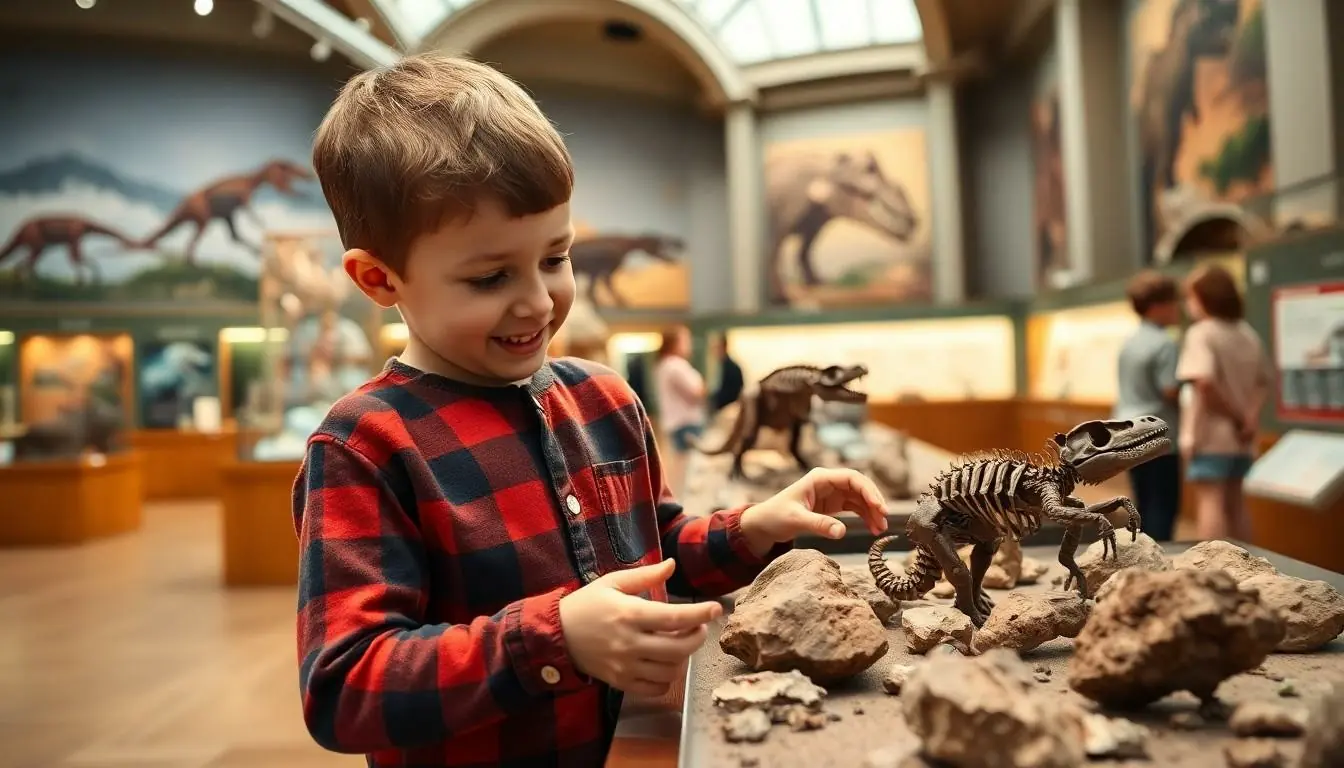Imagine a world where learning isn’t confined to four walls and textbooks. Welcome to the fascinating realm of unschooling homeschooling, where curiosity reigns supreme and every day is a new adventure. It’s like giving your kids a treasure map instead of a strict syllabus, allowing them to explore their passions at their own pace.
Table of Contents
ToggleUnderstanding Unschooling Homeschooling
Unschooling homeschooling emphasizes personalized learning, driven by a child’s interests. It contrasts sharply with conventional education methods.
Definition of Unschooling
Unschooling defines a learner-centered approach, where education unfolds naturally through experiences. Curiosity fuels this method, allowing children to pursue their passions. For instance, a child fascinated by space may engage with astronomy through documentaries, books, and hands-on experiments. This method encourages critical thinking and independence by allowing learners to ask questions and seek answers. Parents act as facilitators, guiding exploration without imposing strict curricula. The concept roots itself in flexibility, adaptability, and a recognition that learning occurs everywhere, not just within the confines of a classroom.
Definition of Homeschooling
Homeschooling refers to an educational practice where parents educate their children at home. Unlike traditional schooling, this approach tailors instruction to meet the child’s individual needs and learning style. For example, a homeschooling parent may employ diverse resources, such as online courses, local co-ops, or libraries, to create a rich learning experience. This method fosters deeper family connections, enabling parents to instill values alongside academic knowledge. Autonomy plays a crucial role, allowing parents to adjust their curriculum based on their child’s evolving interests and progress. Overall, homeschooling promotes a varied and comprehensive education that extends beyond textbooks.
Key Principles of Unschooling
Unschooling emphasizes the importance of personalized education. Central to this approach, students direct their own learning based on their interests and curiosity.
Child-Led Learning
Child-led learning represents a core principle of unschooling. Learners choose what, when, and how to study. Individual explorations spark passion and motivation, fostering deeper understanding. For example, a child fascinated by dinosaurs might engage with books, documentaries, and outdoor visits to fossil sites. Parents support this process by providing resources, asking guiding questions, and encouraging exploration without imposing rigid structures. Trusting children to lead their learning journey cultivates independence and critical thinking skills. This autonomy plays a crucial role in developing learners who are engaged and enthusiastic about their education.
Real-World Experiences
Real-world experiences enrich the unschooling philosophy significantly. Everyday activities and interactions serve as valuable learning moments. For instance, cooking together allows children to practice math through measuring ingredients or develop science skills while exploring heat and cooking processes. Traveling to new places introduces historical and cultural lessons, while community involvement provides opportunities to learn social skills and teamwork. Emphasizing practical application connects theoretical knowledge to real life. This hands-on approach supports a more holistic education where children learn to navigate the world confidently and effectively.
Benefits of Unschooling Homeschooling
Unschooling homeschooling offers several significant advantages that enhance the education experience for children. These benefits include personalized education and fostering curiosity.
Personalized Education
Personalized education stands at the forefront of unschooling homeschooling. Children engage deeply with subjects that pique their interest, enabling them to absorb knowledge more effectively. Parents support their learning by providing resources tailored to individual needs. Learning becomes a flexible journey rather than a rigid path. Students thrive when they choose their projects, whether exploring marine biology or the art of storytelling. This autonomy builds self-discipline and fosters a sense of ownership over their education. Many find this approach leads to a deeper understanding and retention of concepts, reinforcing their natural learning styles.
Fostering Curiosity
Fostering curiosity is a central theme in unschooling homeschooling. Children explore diverse topics at their own pace, which ignites a passion for learning that traditional methods often stifle. Unstructured environments encourage questioning and experimentation. Children might design science experiments or delve into the history of their favorite video games. Such opportunities allow them to make connections between different areas of knowledge. Engaging with real-world scenarios cultivates critical thinking skills and develops creativity. Curiosity-driven learning promotes a lifelong love of education, preparing children to embrace challenges eagerly.
Challenges of Unschooling Homeschooling
Unschooling homeschooling faces several challenges that families must navigate.
Lack of Structure
Without a formal curriculum, some parents and children struggle with a lack of structure. Setting daily routines may prove challenging as learning adapts to each child’s interests. Students may experience difficulties in time management, leaving them unsure of when to engage in specific subjects. Establishing guidelines for learning can help create a balance between free exploration and necessary skills. Some families benefit from incorporating a flexible schedule, allowing both guided and independent learning.
Socialization Concerns
Socialization raises concerns for many families embracing unschooling homeschooling. Many worry that a non-traditional education approach limits children’s opportunities to interact with peers. Communities often provide resources for social activities, such as co-ops and clubs, where children can engage. Participating in group projects and community events helps build essential communication skills. It is crucial for families to prioritize social experiences to ensure children develop friendships and social skills alongside their academic pursuits.
Conclusion
Unschooling homeschooling offers a unique approach to education that prioritizes a child’s interests and natural curiosity. By fostering a learner-centered environment, it empowers children to take charge of their educational journeys. This method not only cultivates critical thinking and independence but also encourages a lifelong passion for learning.
While challenges like establishing structure and ensuring socialization may arise, families can find creative solutions that enhance the unschooling experience. Ultimately, unschooling homeschooling represents a transformative path, allowing children to explore the world in a way that resonates with their individual passions and learning styles.





